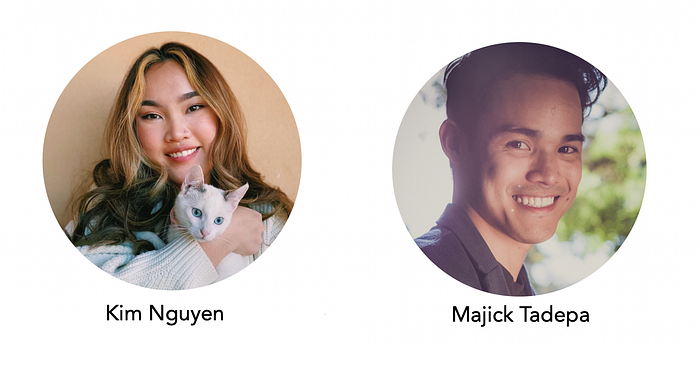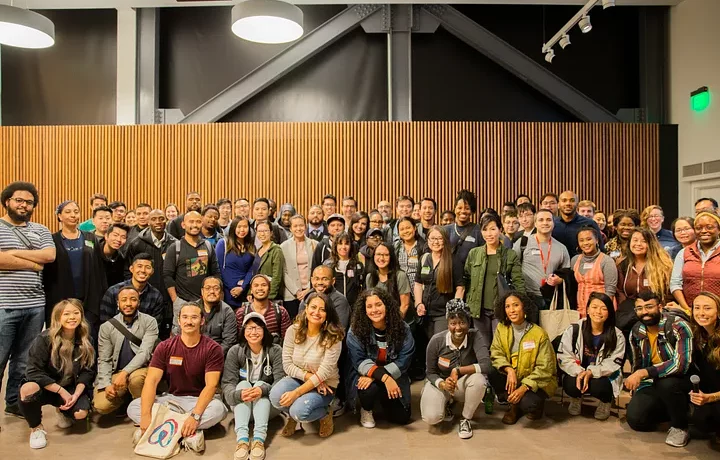Kapor Center’s Pathways to Tech initiative was delighted to connect local underrepresented talent into Airbnb’s 2021 software engineering apprenticeship cohort. Read on to find out why we’re excited about (1) Airbnb’s inclusive apprenticeship model, (2) the partnerships we are forging to connect talent to their and other programs, and (3) the diverse talent that will be joining Airbnb via Pathways to Tech this year.
1) Airbnb’s Inclusive Apprenticeship Model
Tech apprenticeships are emerging as an efficient model for companies to develop junior talent and diversify their workforce outside of traditional university recruiting. They’re also one of the few formal pathways to high-pay tech careers available to non-traditional talent from bootcamp, community college, and self-taught backgrounds. Unlike internships, apprenticeships provide paid on-the-job and classroom learning geared towards conversion into full time roles.
Airbnb’s software engineering apprenticeship program, Connect, implements a number of best practices the Kapor Center advocates for around inclusion, and that we hope other companies will adopt, such as:
- Meaningful community partnerships: the Connect team works through the power of community to develop partnerships and info sessions with embedded training and intermediary partners like the Kapor Center.
- Skill-based hiring: the program screens non-traditional engineering talent appropriately — for skill aptitude and life experience at an entry-level (vs traditional degree requirements, job experience, and advanced skills). As a result, the program includes not only individuals without four-year CS degrees, but also those with Associate’s degrees and GEDs.
- Inclusive culture and fair living wages: Connect provides living-wage compensation and benefits as well as access to employee mentors who are themselves from diverse and non-traditional backgrounds.
- Conversion to full time roles: the program follows through on converting many apprentices into full time roles, demonstrating that Airbnb is serious about absorbing the diverse apprentice talent in which it invests.
At the Kapor Center, we selectively partner with companies whose apprenticeship programs show similar commitment to these best practices.
2) Kapor Center’s Approach to Connecting Talent to Apprenticeships
As an intermediary, the Kapor Center’s Pathways to Tech initiative collaborates with partners in our local tech ecosystem to prepare talent of color for apprenticeships. Pathways into tech can be challenging and complex, particularly for non-traditional and racially underrepresented talent. Multiple organizations must play a role in that journey — from technical upskilling, to last-mile career readiness, to screening and hiring.
Here’s how we collaborated with ecosystem partners to create a pathway into Airbnb Connect:
Technical upskilling: We work with local bootcamps and community colleges who have upskilled talent, but often lack the bandwidth to help talent of color navigate the unique challenges they face in their job search. We organized a cohort of 20 graduates from such programs who are racially underrepresented in tech and who also met the application requirements to apply to Connect.
Last-mile career readiness: Next, we leveraged the Airbnb community partner guide to educate talent about what to expect in the apprenticeship application process. We coached them on their essays, ensured their sample code fit Airbnb’s requirements, and connected them to technical and cross-functional interview practice with partners who take a culturally-competent approach to serving people of color.
Screening and hiring: Once applicants submitted their applications, they were screened by Airbnb according to the same standards as all other applicants with an emphasis on skill aptitude and life experience. We appreciate that Airbnb went to great lengths to make Connect accessible and non-intimidating — in the program application’s language, in real talk with previous apprentices of color, and in the anxiety-reducing interviews they held.
As a result of this ecosystem collaboration, eight talented individuals from the Kapor Pathways to Tech partnership were invited to interview with Airbnb Connect and three were accepted into the program as software engineering apprentices.
3) Apprentice Stories: Meet Majick and Kim!

In honor of Asian American Pacific Islander (AAPI) heritage month, we highlight the stories of two talented apprentices, Majick Tadepa and Kim Nguyen, who will join Airbnb Connect via the Kapor Pathways to Tech partnership. While Asian groups are often lumped together and considered well-represented in tech, Southeast Asians and Pacific Islanders remain highly underrepresented and face disproportionate education and economic outcomes.
Majick Tadepa and his family emigrated to the Bay Area from the Philippines. Ever since then, he struggled with the daily, existential challenges that come with being an immigrant. These experiences also taught him what it means to belong in a community and how to use his knowledge, values, and experience to improve the spaces he’s in. Majick is a graduate of the Rithm School bootcamp.
Kim Nguyen was born in Vietnam but migrated to the Bay Area to pursue education. Before attending Flatiron bootcamp, she was working towards an AS degree in Nursing and worked at a local tea shop. As a first-generation immigrant and a member of the LGBTQ+ community, she strongly believes everyone deserves an equal chance to follow their dreams and contribute to the community.
Both apprentices believe in the power of coding to change people’s lives for the better:
“I view coding — like literature and other forms of creativity — as a language with rhythm, design, and the possibility to catalyze radical change,” says Majick.
Kim shares, “the top reason why I want to be a software engineer is to build applications that overcome real-world obstacles that help, support, and include others.”
Both believe more racially and economically inclusive apprenticeship programs are needed:
In Majick’s view, “not only do apprenticeships promote equity, but they also expand and diversify the pool of thinkers [at a company] — leading to a more inclusive and optimal product.”
“Folks from non-traditional backgrounds need an opportunity to break into tech because we are as competent as others and have demonstrated the ability to learn how to code in a shorter time period,” explains Kim.
For the reasons that Kim and Majick highlight, and to help build a more equitable tech sector and US economy, we strongly encourage (1) companies to follow Airbnb’s example by intentionally designing inclusive apprenticeships (2) more ecosystem partners to collaborate on culturally competent pathways into these unique opportunities, and (3) more non-traditional talent of color to apply. A big round of applause goes out to everyone fueling this urgent movement.
*************************************
The Kapor Center has identified an urgent need for racially and economically inclusive tech apprenticeship. In an ongoing series on “The Bridge,” we highlight concrete actions we are taking to advance inclusion in tech apprenticeship, upskilling, and the future of work.

